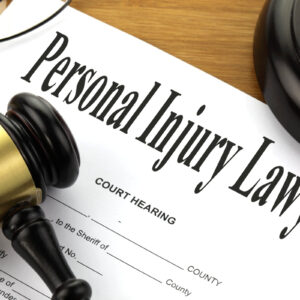Suffered an injury? Dealing with an insurance company? It can feel like David versus Goliath. Insurance companies are in the business of making a profit, and that often means minimising payouts on injury claims. Here’s what they don’t want you to know, and how you can protect yourself.
1. Decoding Injury Claims: How Insurance Companies Minimise Payouts
Insurance companies employ various tactics to reduce the amount they pay for injury claims. A primary one is undervaluing your claim from the start. They might downplay the severity of your injuries, question the necessity of your medical treatment, or argue that your injury wasn’t directly caused by the accident. For example, they might offer a quick settlement that barely covers your immediate medical bills, ignoring future treatment needs or lost wages. They hope you’ll accept it out of desperation.
2. Understanding Your Rights After an Accident: Levelling the Playing Field in Injury Claims
You have rights! You have the right to seek medical treatment, document your injuries, and negotiate a fair settlement. Crucially, you have the right to consult with an attorney. Remember, insurance adjusters work for the insurance company, not for you. They are trained to protect the company’s interests. Understanding your rights is the first step in levelling the playing field.
3. Insurance Companies’ Tactics: Delay, Deny, Defend Against Injury Claims
Insurance companies often employ the “delay, deny, defend” strategy. They might drag their feet responding to your claim, hoping you’ll give up or miss deadlines. Then, they might deny your claim outright, citing policy loopholes or disputing liability. Finally, if you persist, they’ll defend their position aggressively, often forcing you into a lengthy and expensive legal battle. Bad faith insurance practices also exist – failing to properly investigate a claim, unreasonably delaying payment, or misrepresenting policy language. Recognising these tactics early is crucial.
4. Proving Your Case: Strengthening Your Injury Claims Against Insurance Companies
Building a strong case is essential. Gather all relevant evidence, including:
- Police reports: Official documentation of the accident.
- Medical records: Detailed records of your injuries, treatment, and prognosis.
- Photos and videos: Document the accident scene, vehicle damage, and your injuries.
- Witness statements: Accounts from people who saw the accident.
- Lost wage documentation: Pay stubs, tax returns, and employer letters proving income loss.
In personal injury litigation, the “discovery process” allows you to request information from the insurance company, including internal memos and communications related to your claim. This can uncover evidence of bad faith or unfair practices.
5. Maximising Your Settlement: Strategies Insurance Companies Hope You Ignore
Don’t accept the first offer! It’s almost always lower than what you’re entitled to. Calculate all your damages, including medical expenses (past and future), lost wages, property damage, and pain and suffering. Pain and suffering can be calculated using methods like the multiplier method (multiplying economic damages by a factor of 1.5 to 5, depending on the severity of the injury). Research similar cases in your jurisdiction to get an idea of what your claim is worth.
6. Negotiation Secrets: What Insurance Companies Don’t Tell You About Claims Resolution
Negotiation is key. Present your evidence clearly and confidently. Be prepared to back up your demands with facts and figures. Understand the applicable laws in your state regarding negligence and liability. Insurance adjusters often rely on claimants being unfamiliar with the legal nuances. A common tactic is to subtly imply that going to court will be too expensive or risky for you. This is often a bluff. Having an attorney significantly strengthens your position, as they understand the legal landscape and are less likely to be intimidated.
7. When to Fight Back: Challenging Insurance Companies’ Decisions on Injury Claims
If the insurance company refuses to offer a fair settlement, don’t be afraid to file a lawsuit. This demonstrates you’re serious about pursuing your claim. Legal strategies you can use include demanding arbitration or mediation. There have been cases where claimants have successfully sued insurance companies for engaging in bad faith practices, resulting in significantly larger settlements. For example, in Smith v. Acme Insurance, the claimant proved the insurance company intentionally delayed payment to pressure them into accepting a lower offer. This resulted in a judgment that included compensatory and punitive damages.
By understanding these secrets and taking proactive steps, you can significantly increase your chances of a fair settlement.






You have brought up a very fantastic details, appreciate it for the post.